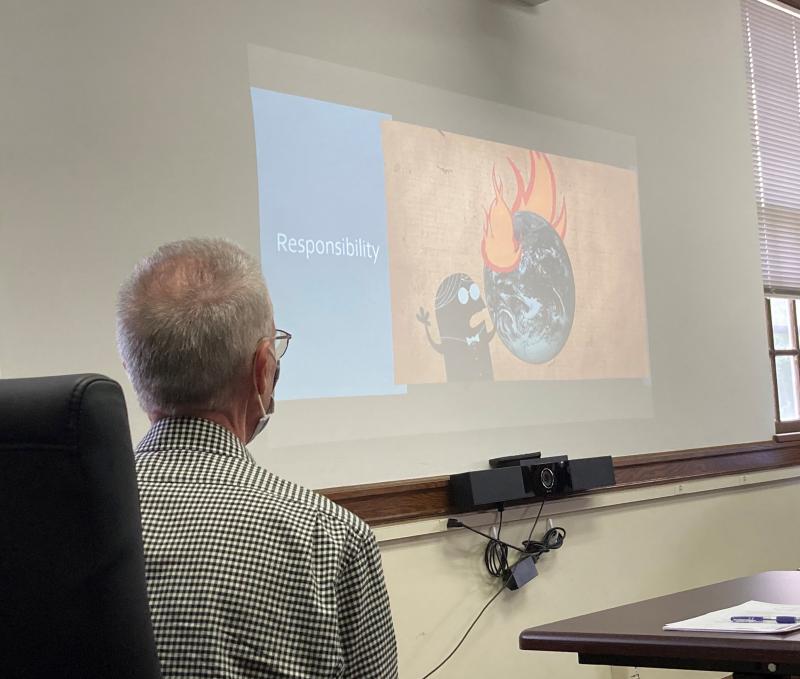Committee to craft new solar bylaw
The members of the newly formed Solar Bylaw Review Committee have a difficult task: Crafting a bylaw that limits the negative impacts of solar fields and other types of renewable energy generation while still being fair to landowners who may want to use their land for those purposes.
Proposed solar fields in town, many of which require acres of trees to be cut down, have drawn the ire of environmental activists who decry the damage to nature.
At the June 2021 Town Meeting, voters passed a temporary moratorium on large-scale solar projects. When developers saw the restrictive bylaw on the town’s warrant, that prompted nine developers to file subdivision plans that would effectively freeze the zoning laws for their property before the moratorium.
Nancy McHale of the Wareham Land Trust was chosen to serve as chair of the committee at its first meeting on Sept. 15.
“We need to try to strike a balance between conservation, preservation, and the rights of the landowner -- I firmly understand that,” McHale said. “Obviously, we’re going to need to do renewable energy in order to help mitigate climate change, but taking down old forest is not the way to do it. Creating heat sinks is not the way to do it.”
Town Assessor Jacqui Nichols said that the group should take new technology into consideration while crafting the bylaw. The town’s current bylaw, written in 2017, was based on what technology was available then. For example, the current bylaw does not address battery storage.
Nichols said she is monitoring changes at the state level, including a law that effects how solar energy is valued and taxed.
“The committee is going to have to be sort of soothsayers, because the technology is changing so fast,” said Jane Gleason, one of two members of the public hoping to join the board. Town Planner Ken Buckland said there are ways to address that in the bylaw.
Town Administrator Derek Sullivan said that the group could consider writing a bylaw that would incentivize putting solar on roofs or over existing parking lots. He noted that the town did not put solar on the roof of the new school because it has maxed out its solar credits — any more solar on town property would require the town to start paying the electric company.
Linda Rinta, a cranberry farmer who recently was awarded for her conservation work, said she’s been working for years to get permission for — and to build — a small solar array on her farm. Solar energy, Rinta said, has saved a number of farms, as it supplements small farmers’ income.
Carl Schulz of the Planning Board noted that the committee should make communicating with voters a priority.
The committee plans to meet weekly, with the goal of creating a bylaw that could be voted on at the 2022 Spring Town Meeting.













